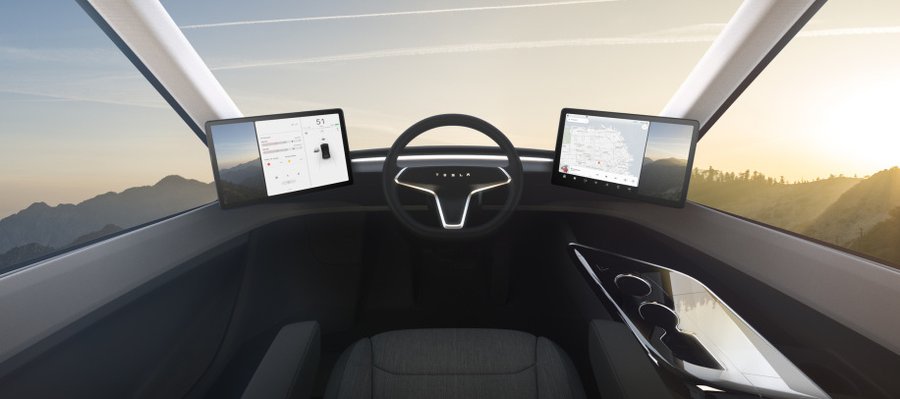Three automotive tech trends to watch in 2018 and beyond

To put things in perspective, 10 years ago iPod integration and Bluetooth were cutting-edge in-car innovations, and smartphones and apps weren't yet a thing since the first iPhone was only about six months old. And I can't recall anyone talking about autonomous cars.
Compare that to today, with mainstream coverage of the auto industry dominated by autonomous technology, along with electrification and almost every move made by Tesla. These three topics were the most significant trends of car tech in 2017 and I believe they will continue to shape the auto industry in 2018 and beyond. Let's examine them.
Full Autonomy Gets Closer to Reality
While there were many developments this year that indicate we're inching closer to fully autonomous vehicles, I was behind the wheel for hours to witness one of them. In October I had the chance to test Cadillac Super Cruise on a 700-mile, 11-hour drive from Dallas to Santa Fe – and had my hands on the wheel for maybe 45 minutes max throughout the entire trip.
Super Cruise is far from making the Cadillac CT6 or any GM vehicle fully autonomous, and has limitations such as functioning only on pre-mapped main highways. While it simply adds a layer of lane centering to adaptive cruise control, the technology will go a long way in making mainstream drivers more comfortable with letting machines take over.
On a separate front, GM is pushing ahead with fully autonomous vehicles and announced last month that it plans to launch of fleets of self-driving robo-taxis in several urban areas in 2019. While most automakers are also in the race to make autonomous cars a reality, GM's turbocharging of its efforts appeared to be in response to Waymo, which announced just weeks earlier that its Early Rider Program in the Phoenix area would go completely driverless.
The Early Rider Program launched last April, offering the public a chance to ride in Waymo's autonomous Chrysler Pacifica minivans. In this new phase of testing, Waymo is using its own employees as guinea pigs instead of the public while the vehicles operate without a human behind the wheel, and takes another giant step forward for fully autonomous driving.
The Auto Industry Goes Electric
While consumers are generally still chilly toward electric vehicles, almost every major automaker announced a major EV initiative this year, and with an eye toward how electrification will fit into an autonomous vehicle future. Mercedes-Benz announced in September it will offer 50 electric versions of all its models by 2022. Shortly afterwards, BMW said it's gearing up to mass-produce electric cars by 2020 and will make 12 different models by 2025.
In October, GM announced it will add 20 new EVs and fuel-cell vehicles to its global product lineup by 2023, while on the same day Motown rival Ford said it had formed a team to accelerate global development of EVs. In November, Volkswagen declared it will spend $82 billion developing EVs, autonomous driving and new mobility services by the end of 2022, and earlier this month Toyota said it intends to spend $13 billion and introduce 10 or more EVs early in the next decade.
Where will buyers for these EVs come from? It may take decades, but Europe could become a huge EV market now that both Britain and France plan to ban the sale of gasoline-powered cars by 2040, while China and California are considering sanctions.
In the meantime, GM has a hit on its hands with the Chevy Bolt and Nissan has turned over a great new Leaf, and both EVs are designed to get a head start the Tesla Model 3. While Faraday Future is going down in financial flames, EV startup NIO is on track to introduce a new crossover that will compete with the Tesla Model X, and traditional luxury automakers have vehicles in the works to rival the Model S.
Tesla Takes on the World and Vice-Versa
Notice how many times in that last paragraph Tesla is used as a benchmark for EVs? Whether you view Tesla CEO and cofounder Elon Musk as an EV visionary and savior of the planet or the biggest source of hubris in the auto industry – or something in between – you got to give the guy credit for his ambition. And for setting trends that the rest of the auto industry has no choice but to follow.
Forget for a second the delays with the Model 3 deliveries – unless you're still waiting for yours – and consider that in a single evening Musk once again reset expectations by debuting an electric Tesla Semi and created a new benchmark for electric supercars with the latest Roadster. Of course, Tesla isn't the only automaker using battery electric vehicles to turn in mind-boggling 0-60 times, and Daimler, Bosch/Nikola Motor and Cummins all beat Tesla to the punch with EV semis.
But that Tesla continues to set standards in so many ways – for production-ready semi-autonomous driving (Super Cruise notwithstanding), electrification, over-the-air software updates and more – means that it's the company other companies will continue to watch in 2018 and beyond. And it makes me wonder what we'll see in 2028 in terms of technology's effect on the auto industry.


